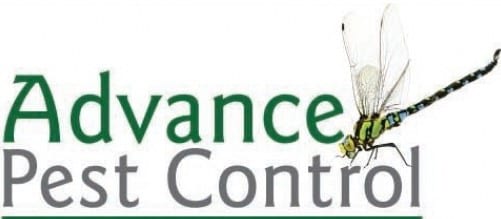Fleas
Are you scratching your ankles? Do you see little black dots on the bottom of your socks? You may have fleas. Well, more appropriately your pet has fleas and they are infesting your home.

Flea infestations are the most common parasite problem of dogs and cats in our area. Unfortunately, here in North Carolina there really is no end to flea season. The fleas can survive our winter, so it is necessary to use flea preventative year round. It is estimated that American pet owners spend over 500 million dollars each year on flea products most of which do not work! During the past few years much research has centered on studying the life cycle of the species of fleas that attack dogs and cats in an effort to develop better flea control methods. There are over 2000 species of fleas, but only a few actually attack dogs and cats.
Here are some facts you should know:
Flea eggs are white and about the size of a grain of sand. The eggs are laid while the flea is on the pet and easily roll off the fur into the environment. Eggs usually hatch in 1-10 days, depending on the temperature and humidity. Once the eggs hatch, the larvae move deeper into the carpet to get away from light and searching for food. Temperatures below 65 degrees and relative humidity below 70% slow down growth of the flea. When the larva is mature, it produces a silk-like cocoon. Because the cocoon is sticky, it quickly becomes coated with debris from the environment that helps camouflage it.
This stage can last 9-174 days. Adult fleas emerge from the cocoon when stimulated by heat, vibrations, and exhaled carbon dioxide. Under average conditions, the entire life cycle takes 3-4 weeks.
Adult fleas are attracted to house pets by the warmth of your pet’s body, movement, and changes in light intensity, and exhaled carbon dioxide. Fleas have tremendously powerful back legs, which they use for jumping on your pet. It is estimated that if we had the same power in our legs as the flea has, we could jump over the Empire State Building. It is reported that fleas can jump as high as 13 feet.
It is now known that the adult flea species that attacks dogs and cats spends its ENTIRE adult life on your pet. Once the adult flea begins to feed on your pet, it must have almost constant access to the blood of your pet for it to survive. Adult fleas cannot live off your pet more than 3-4 days without a blood meal.
Egg production begins within 48 hours of the first blood meal, reaches a peak of 40-50 eggs per day and can last well over 100 days. Female fleas can produce over 2000 eggs during their life. This is equivalent to producing their body weight in eggs every day of their life. While only a fraction of these eggs will eventually develop to adults in the natural environment, this high rate of reproduction ensures that there will ALWAYS be fleas!
It is common for people to be attacked by fleas after returning from vacation or being away from home for several days. This is often due to the increased temperature that occurs when the air conditioning is turned back providing a better optimum temperature and humidity (in our area) for fleas to mature.
Fleas consume 15 times their body weight with every blood meal. An infestation of 220 female fleas could consume 10% of a 1-pound kitten’s blood volume in one day. The majority of blood consumed is passed out as partially digested feces (“Flea Dirt”) that serve as essential food for flea larvae in the carpets and other areas.
FLEA CONTROL MUST INCLUDE TREATMENT OF THE YARD, HOUSE, AND PET!
While your use topical treatments on your pets, Advance Pest Control will come out and treat your yard and home. Here are the steps to getting your home treated for a flea infestations:
- Remove everything from your carpets except large furniture.
- Vacuum your entire carpet just before and several days after your appointment.
- Discard the vacuum bag or contents of the canister outside your home.
- Make plans to be away from your home for 3-4 hours after your treatment.
- Call or contact us to schedule your appointment.
